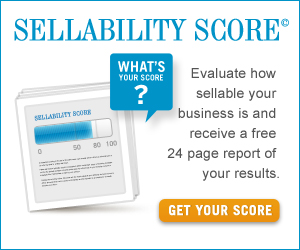So, why is your financial plan missing the mark? Every month you’re putting money aside, investing in the top mutual funds you can find, not putting all your eggs in one basket – doing the right things. But, you still feel like you’re falling short of your goals.
Your worry factor is high. Consuming financial news via radio, internet and social media doesn’t help – it’s all bad news and usually difficult to follow. Your confidence is low. But why? You have a financial plan and isn’t that the first step to financial success?
The answer, unfortunately, is very simple.
You, like 1 in 5 Canadians, don’t have a financial plan. And, even if you’re working with a financial advisor, the likelyhood of you having a comprehensive financial plan are slim to none.
Unfortunatley, financial planning somehow turned from an advisory process to a marketing process for advisors to acquire more assets to manage and more insurance to sell. The plan was used to encourage a product sale instead of being a roadmap to rely upon.
Free financial plans have singlehandedly done more to harm the financial industry than anything.
Mutual fund companies have supported this movement by offering advisors free financial planning software to use to prepare a pretty weighty document to give away in exchange for investing clients money in that companies mutual funds.
This practice of offering a free finanical plan has done nothing but de-value and commodotize the finanical planning process. Which is a shame because financial planning is the key, it always has been and always will be. But, when an industry is built on product sales and not advice, you tend to get what you pay for.
So, how do you know if the plan you have is a comprehensive financial plan or simply prepared to entice you to invest with the advisor you’re working with?
Just ask yourself these questions:
- Did you sign a Letter of Engagement with your financial planner before you began working with them?
- Did you pay a fee, separate from the implementation of your financial plan, for the financial planning services?
- Does your plan tell you what your Attainable Income is in retirement?
- Does your plan tell you what your Attainable Retirement Age is?
- Does your plan tell you what your required rate of return is?
- Does your financial plan incorporate “KAIZEN” a.k.a. Constent and never ending improvement?
If you answerd NO to any of these questions, the reality is that you don’t have a finanical plan.
A Certified Financial Planner is required to have you sign a Letter of Engagement to clearly outline for you what services they will provide, what costs are involved, what conflicts of interest (if any) exist, what licenses are held and what everyone’s responsabilities are. In my mind, it also shows that you are dealing with a professional.
Professionals charge fees for their advice. A financial planner who doesn’t charge a fee for their financial planning process is a product salesperson.
A comprehensive financial plan will not only tell you whether you are on track for a specified retirement income goal, but it will also tell you what is attainable. And this, this is what we are all really curious about. What we can attain assuming certain criteria.
Trying to answer the question as to whether or not your on track without the use of a comprehensive financial plan reminds me of a conversation that Dorothy had with the Cheshire Cat in the tale, Alice in Wonderland:
Would you tell me, please, which way I ought to go from here?’
`That depends a good deal on where you want to get to,’ said the Cat.
`I don’t much care where–‘ said Alice.
`Then it doesn’t matter which way you go,’ said the Cat.
`–so long as I get SOMEWHERE,’ Alice added as an explanation.
`Oh, you’re sure to do that,’ said the Cat, `if you only walk long enough.'”
You need to know where you want to get to before you can assess whether or not you are hitting the mark. Your goal becomes your benchmark. Your comprehensive finanical plan becomes your compass. You need to know what you can attain based on what you are prepared to do to properly assess whether or not you are willing to change your ways.
A financial plan that has the ability and sophistication to determine what is attainable is a powerful solution. And please, don’t take this statement lightly.
Finding a finanical planner that has the ability to do this type of calculation is difficult. It’s difficult because the free finanical planning software doesn’t run this type of calculation – it’s too sophisticated. A certified finanical planner who understands the power of the “attainable” calculation will take the time and spend the money to learn and purchase the most powerful software that can meet these finanical planning demands. They’re not cheap solutions but they are better solutions.
Finanical planning is all about answering your questions and helping you attain your goals – not the advisor’s.
And finally, the incorporation of KAIZEN (a Japanese term for “constant and never ending improvement”) is critical to your long term financial planning success. Simply put, it’s the re-visiting and updating of your assumptions and never ending tweaking and improving to ensure your calculations are as reliable as possible. This can only be accomplished by regular reviews.
When was the last time you re-calibrated your financial plan to account for the current economic environment? If you answer is anything longer than 12 months, you are not reviewing it often enough and are not taking advantage of KAIZEN.
KAIZEN Finanical Planning is being recognized as a reliable way of keeping on top of your financial plan. Incorporating KAIZEN into your finanical planning will surely keep you on the right track – that is once you know what the track is you want to run on.
Financial planning is the key, it always has been and always will be.
 There is a potential time bomb lurking in Tax Free Savings Accounts (TFSA) that have investments in them that were purchased using a Deferred Sales Charge (DSC) compensation model.
There is a potential time bomb lurking in Tax Free Savings Accounts (TFSA) that have investments in them that were purchased using a Deferred Sales Charge (DSC) compensation model.



 The majority of businesses in Canada today started out as service companies. If you want to own a web design firm, you didn’t need a lot of money, just a technical knack. Enterprising professionals who know how to get the media’s attention can start their own pubic relations firms without much more than a mobile phone. No capital required.
The majority of businesses in Canada today started out as service companies. If you want to own a web design firm, you didn’t need a lot of money, just a technical knack. Enterprising professionals who know how to get the media’s attention can start their own pubic relations firms without much more than a mobile phone. No capital required.


 In this episode, I interview Roger Thorpe, President of Thorpe Benefits and we have an in-depth discussion about Employee Benefits. Roger reveals to us his perspective on how business owners can better utilize their group benefits plans to enhance their employee experience.
In this episode, I interview Roger Thorpe, President of Thorpe Benefits and we have an in-depth discussion about Employee Benefits. Roger reveals to us his perspective on how business owners can better utilize their group benefits plans to enhance their employee experience.




